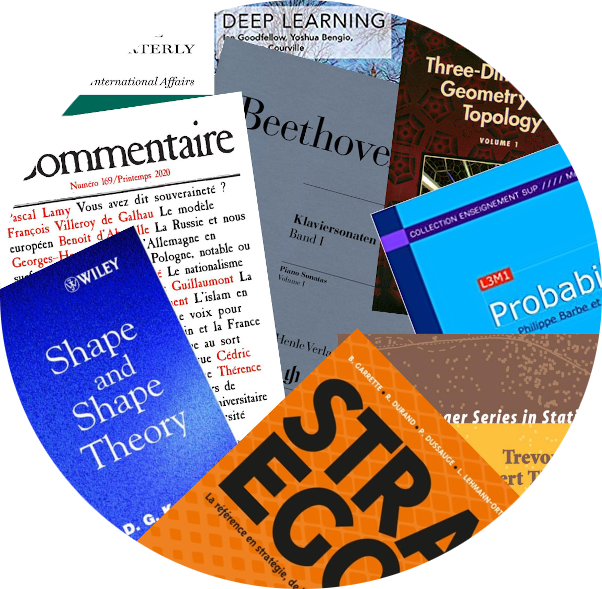 Philippe Barbe
Philippe Barbe

|
The edited media ecosystem at a critical junctureby Philippe Barbe
24 Mar 2021
|
Part 20 of 20 in a series examining the interplay of Data Science, AI, the media and advertising.
The edited media industry, newspapers, radio, and television, can continue to apply the recipe that worked so well for them in the past … selling the audience their vetted content attracts to advertisers … and continue to lose those ad dollars to tech platforms that simply push user-generated content with no editing.
Or, it can also look at the past, learn from its failures and from the success of the digital advertising ecosystem.
It can see what worked, understand why it worked, and build something new that will lead to success.
Three thousand years of media and advertising history holds valuable lessons not to be taken lightly. Yet, many media and advertising executives have not learned much from that history. In a sense, that history follows a law of physic: disorder, randomness and uncertainty, as measured by entropy, increase. For media, the process of segmentation, fragmentation and consolidation is never ending, constantly pushed by technical evolution.
Demand for good content is increasing as more people around the world access a middle-class lifestyle. And, an increasingly better educated global population seeks to be better informed to hold their leaders accountable. Yet, despite an ever-larger audience, quality journalistic content has been losing value. Revenues are down, pointing to a crisis in monetization of that audience.
There has never been so many media outlets reaching so many people, yet most of the those outlets are inaccessible to advertisers, lost in a massification of the industry not supported by its current transactional processes and systems.
The edited media is in crisis and has been in crisis for more than 15 years!
Will it survive? Not if it keeps misidentifying its problem. Its economic hardship is not created by digital competitors, at least not in a primary way. It is not created by lack of interest either. It is a result of:
- technical evolution and vision that allowed a few corporations to create a global market in the digital space;
- misalignment of business processes to a long historical trend of fragmentation of the audience and segmentation of the medium, that consolidation alone cannot address,
- loose regulation of the digital players giving them some competitive advantage.
While regulators are wary of the large tech companies and will pass legislations that pushes back on their irresponsibility, these companies are now so large that they will not be sacrificed for the profit of an edited media industry which has been unable to envision its own future.
I have been arguing in this series that the main problem of the industry is a process one, and that this problem can be solved with the building of a platform where marketers can go, get the intelligence that they need, plan their campaign, buy the media space, run their campaign, change it as needed on the fly, and get clear reports on performance.
The creation of such a platform offers a chance for the industry to re-route the flow of money in such a way that the tech giants will be customers, not competitors.
The edited media industry’s transactional process need to be modernized, thought of at the global scale, offering all stakeholders an experience better than that on the current digital ecosystem.
The Exchange proposed in this series is a possibility. Modeled on the SWIFT global financial system where competitors cooperate to speed up transactions, the promise of the Exchange is based on a fundamental economic fact: money is a debt that is passed. Money is given in exchange for work … a service or item that was provided. Wealth is an acceleration of this debt… more work, done faster. The Exchange is a mechanism to gain a huge efficiency that accelerates media industry transactions thus bringing more wealth to the entire industry.
Success of the Exchange is dependent on a conviction by the industry that it needs to leverage Data Science, ML and AI in all aspects of the media/advertising game… content, planning, contracts, transactions, and execution.
With that efficiency, the industry will be able to move in the direction of history, offering more content to more people in a more personalized way. Broadcasters will be able to create the new market of data broadcasting; all traditional media will be able to create hyper-local markets and hyper-segmented contents which will be accessible to a global audience of advertisers.
The entire industry can create large-scale economy by leveraging AI and ML to produce much more content in a much more efficient manner, creating an even greater offering for a lower cost. And, advertisers will gain access to a greater inventory in a much more effective manner.
The transactional aspects of the media industry, and the need for human and machine collaboration imply that systems must be particularly reliable if they are to support decisions, able to acquire human input when uncertain, and that uncertainty must be relatively rare for these systems to bring effective automation.
Because the business is complex, this level of reliability is hard to achieve and the needed systems are particularly challenging to build. Meeting that challenge will require the most talented scientists to generate massive innovation which will have applications beyond the industry. This kind of challenge is what ambitious scientists live for. With the proper vision, the opportunity to solve the problem and “change the world” in the process will attract the top talent.
Why is this not being done? The industry lacks courageous leaders willing to innovate on processes and with a clear technical vision. Rebuilding the processes underlying the media/advertising ecosystem will drive innovation enabling them to leapfrog the tech companies.
These leaders must see the global market. They must see that the needed technical solutions can only be built by setting aside their differences. They need to cooperate to stand up the decision supporting infrastructure that will allow the industry to compete with the digital giants while maintaining all the current healthy competition within the industry.
Can the industry wait? The clock is ticking.
The disappearance of cookies as we know them and the streaming of major sporting events on digital platforms will increase the power of the tech companies as they evolve to increase their share in the value chain of advertising planning and execution.
The window for the traditional media industry to save itself looks to me to be less than 5 years. After that, the tech giants will be in position to gain control all media and advertising.
So, the edited media has a choice… stick with their current business models, processes and systems… and become slowly absorbed by the tech companies, or it look beyond the present, set its own future, and chose to reclaim the technical leadership it once had.
The industry is at a juncture, and its future has never been more open.